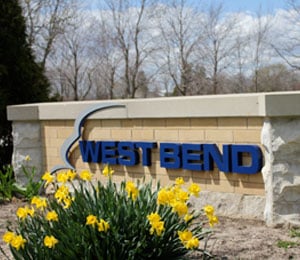 Purchasing insurance can be overwhelming. Definitions, conditions, coverages, exclusions, and endorsements can cause confusion and possibly give you a headache. And buying insurance isn’t exactly exciting or fun. But imagine your life without it. Imagine losing everything you own to a fire and not having insurance to help get your life back on track.
Purchasing insurance can be overwhelming. Definitions, conditions, coverages, exclusions, and endorsements can cause confusion and possibly give you a headache. And buying insurance isn’t exactly exciting or fun. But imagine your life without it. Imagine losing everything you own to a fire and not having insurance to help get your life back on track.
When I ask people who their insurance company is, they usually answer, “I don’t know,” or they give me their local agent’s name. If there’s a loss to your home, auto, or business, the last thing you want to do is figure out who your insurance company and agent are and how they help when your life’s been turned upside down.
The purpose of this blog is to share different things to consider when deciding where to place your insurance business.
1. Independent agent vs. insurance company.
As I mentioned, people aren’t always sure who their insurance company is and who their agent is. West Bend’s products are sold by independent insurance agents. Not only do they sell our products, but they also sell other companies’ products, including West Bend’s competitors. The independent agent's job is to find an insurance company that best fits your insurance needs. This isn’t as easy as it sounds.
To learn more about the benefits of working with an independent insurance agent, check out my blog, “Benefits of an independent insurance agent.”
The insurance company (West Bend) works in partnership with an independent agent before and after the policy is sold. The insurance company:
-
Determines premium by reviewing suggested coverages identified by your independent agent.
-
Provides you with a copy of your insurance policy.
-
Handles your insurance payments.
-
Makes changes to your policy as recommended by your agent or because of a lifestyle change (i.e., new teen driver).
-
Provides businesses with loss prevention strategies.
-
Pays claims should a loss occur.
Please note that an insurance policy is a contract. What’s covered and not covered is specified in your policy. Please be sure to read your policy and talk to your independent agent so you know how a future loss may be covered. Not all losses are covered by insurance.
2. Company history/reputation.
Research the insurance companies you’re interested in. By visiting their websites, you may learn:
-
How long they’ve been in business.
-
In which states they sell their products.
-
Their mission, vision, and values.
-
Who their company leaders are.
-
Community support and involvement.
-
Types of products they sell.
-
Financial strength.
It’s unlikely you’ll find a company with only positive reviews. If the information doesn’t answer all your questions or leaves you feeling uneasy about them, research another company. As with other purchasing decisions, you should be comfortable with your decision.
3. Understand the insurance company’s financial strength.
If you have to file a significant claim, you don’t want to hear your insurance company can’t pay it because of their poor financial results. Many insurance companies work with independent rating agencies that review factors such as their financial results to assign a letter grade or score. Since 1971, West Bend has been rated A (Excellent) or better by A.M. Best Company, recognized worldwide as the benchmark for assessing insurers' financial strength.
To learn more about the independent rating agencies, check out “How to Assess the Financial Strength of an Insurance Company.”
4. Coverage.
Select an insurance company that provides appropriate coverage for your personal or business needs.
5. Price.
While price should be a consideration when purchasing insurance, it shouldn’t be the only one. Remember the old saying, “You get what you pay for.” There are many reasons why pricing differs between insurance carriers. A lower price may mean you have less coverage. Less coverage means more money out of your pocket when a loss occurs. A lower price may also mean that the insurance carrier has entered a new market for them, so they may not have the experience that another insurer would. Please talk to your agent about the differences.
6. Ease of doing business.
Understand how you can interact with an insurance company. Interactions may include:
-
Online bill pay.
-
Online claim reporting.
-
24/7 customer service.
-
Social media platforms.
-
Policy changes.
-
Billing questions.
7. Available discounts.
Many insurance companies offer discounts. Find out what discounts apply to your situation. For example, West Bend offers discounts for:
-
Protective devices.
-
Newer and updated homes.
-
Specialized construction materials or methods.
-
Financial stability.
-
Multi-car families.
-
Good students.
-
Vehicle safety features.
West Bend also offers discounts for associations, groups, or corporations participating in our innovative Association Plus® program.
8. The power of referrals.
We’re inundated with marketing and advertising messages every day, which can be overwhelming. Talk to family, friends, and co-workers to learn about their experiences with an insurance company.
Do you have any suggestions or information you’d like to share? I’d love to hear from you. Please share them in the comment box below.
This article is intended for general educational and illustrative purposes only and should not be construed to communicate legal or professional advice. Further, this article is not an offer to sell insurance. Please consult with your licensed insurance agent for specific coverage details and your insurance eligibility. All policies are subject to the terms, conditions, limitations, definitions, and exclusions contained therein.





